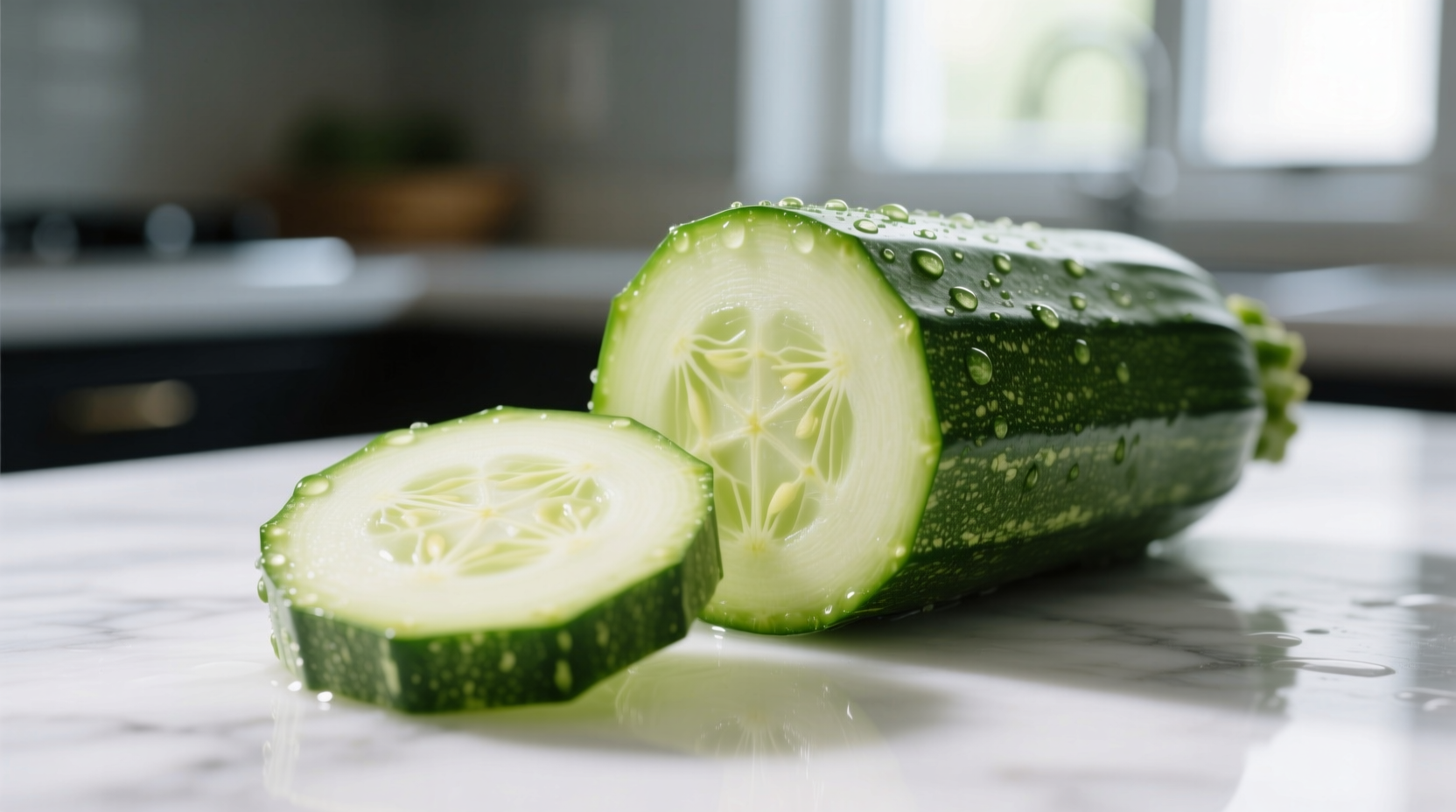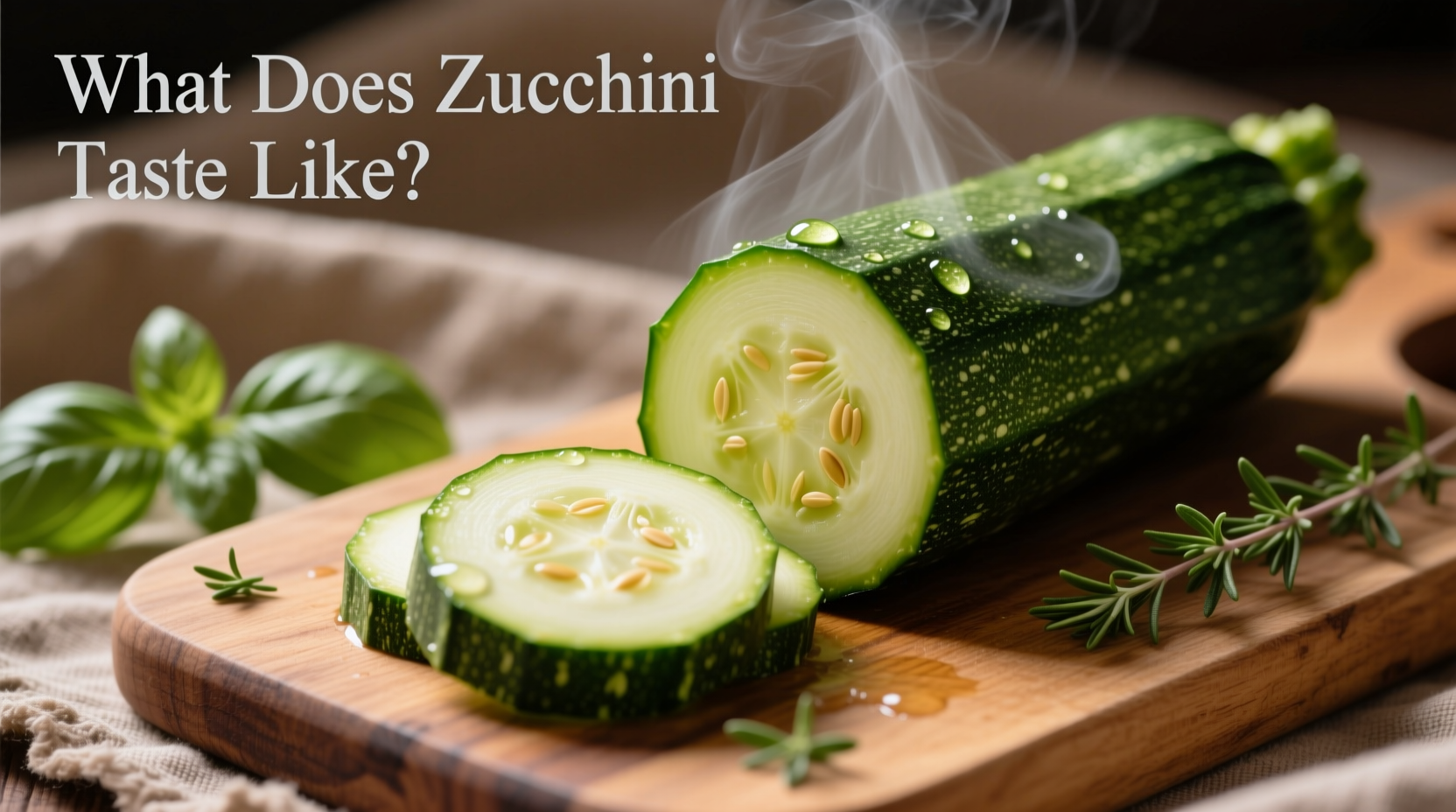Zucchini has a mild, slightly sweet flavor with subtle vegetal notes and a delicate nuttiness when cooked properly. Its taste is often described as neutral, making it versatile for both savory and sweet dishes, though it can develop bitterness if overcooked or if the variety naturally contains higher levels of cucurbitacins.
Your Complete Guide to Zucchini's Flavor Profile
Understanding what zucchini tastes like isn't just culinary trivia—it's the key to unlocking its potential in your kitchen. Many home cooks struggle with this common summer squash because they don't recognize how its flavor changes based on preparation, freshness, and cooking method. Let's explore exactly what to expect from this versatile vegetable and how to make it shine in your dishes.
The Essential Zucchini Flavor Profile
Fresh, high-quality zucchini delivers a clean, refreshing taste that's mildly sweet with earthy undertones. Think of it as nature's blank canvas—subtle enough to absorb surrounding flavors while contributing its own delicate character. The interior flesh has a barely perceptible nuttiness, while the skin adds a slight vegetal note.
Unlike its more assertive relatives like butternut squash, zucchini's flavor remains delicate even when cooked. This makes it incredibly versatile but also means it benefits from thoughtful seasoning. When perfectly prepared, zucchini should never taste bitter—bitterness indicates either over-maturity or improper cooking.
| Vegetable Comparison | Flavor Intensity | Sweetness Level | Distinctive Notes |
|---|---|---|---|
| Zucchini | Mild (2/10) | Moderate | Subtle nuttiness, fresh grass notes |
| Yellow Squash | Mild (3/10) | Higher | Slightly more pronounced sweetness |
| Cucumber | Very mild (1/10) | Lower | Crisp, watery, refreshing |
| Pattypan Squash | Moderate (4/10) | Moderate | Buttery, slightly floral |
What Affects Zucchini's Taste?
Zucchini's flavor isn't static—it transforms based on several key factors that every cook should understand:
Size Matters More Than You Think
Smaller zucchinis (6-8 inches long) typically offer the best flavor profile. As noted by the University of California Agriculture and Natural Resources, larger specimens often develop more seeds and water content, diluting flavor and increasing the risk of bitterness. Their research confirms that harvesting zucchini at peak maturity yields the most consistent, pleasant flavor.
The Bitterness Factor Explained
Occasional bitterness in zucchini comes from naturally occurring compounds called cucurbitacins. While modern cultivated varieties contain minimal amounts, environmental stressors like drought can increase their concentration. If you encounter bitterness:
- Slice off the blossom end (which tends to be more bitter)
- Salt slices and let them sit for 10 minutes before cooking
- Cook with acidic ingredients like lemon juice or tomatoes
Cooking Methods That Transform Zucchini's Flavor
The way you prepare zucchini dramatically impacts its taste experience. Here's how different techniques change its flavor profile:
Raw Preparation
When eaten raw, zucchini offers a crisp texture with a clean, refreshing taste similar to cucumber but slightly sweeter. The skin contributes most of the flavor, so leaving it on enhances the vegetal notes. Try it in salads or as crudités with a light vinaigrette to appreciate its natural character.
Sautéing and Pan-Frying
High-heat cooking brings out zucchini's natural sugars through caramelization. As the USDA FoodData Center explains, the Maillard reaction that occurs during sautéing creates new flavor compounds that enhance the vegetable's inherent sweetness while adding complex nutty notes. For best results, avoid overcrowding the pan to prevent steaming.
Grilling
Grilling imparts a smoky dimension that complements zucchini's mild flavor. The direct heat creates char marks that add bitter-sweet complexity, balancing the vegetable's natural sweetness. Brush slices with olive oil and season simply with salt and pepper before grilling for optimal flavor development.
Baking and Roasting
Slower, dry-heat methods concentrate zucchini's flavor by evaporating excess moisture. When roasted at 400°F (200°C) until golden, zucchini develops deeper, almost nutty flavors while maintaining its structural integrity. This method works particularly well when combined with complementary herbs like rosemary or thyme.
Flavor Pairings That Make Zucchini Shine
Zucchini's neutral profile makes it incredibly versatile, but certain pairings elevate it from bland to brilliant:
- Citrus elements - Lemon zest or a splash of vinegar brightens its mild flavor
- Aromatic herbs - Basil, oregano, and mint complement without overwhelming
- Alliums - Garlic and shallots provide savory depth
- Cheeses - Parmesan or feta add salty complexity
- Nuts - Toasted pine nuts or almonds enhance its subtle nuttiness

Common Flavor Misconceptions
Several myths about zucchini's taste persist in home cooking circles:
Myth: Zucchini always tastes bland
Reality: Properly prepared zucchini has distinctive flavor notes that shine when not overcooked or drowned in heavy sauces.
Myth: All zucchini tastes the same
Reality: Different varieties (like golden zucchini or round varieties) offer subtle flavor variations. Golden zucchini tends to be slightly sweeter with less vegetal notes.
Myth: Zucchini should be peeled before cooking
Reality: The skin contains concentrated flavor compounds and nutrients. Only peel if the skin is tough or waxed.
Practical Tips for Perfect Zucchini Flavor
Apply these professional techniques to maximize zucchini's taste in your cooking:
- Season early - Salt draws out excess moisture that can dilute flavor
- Don't overcook - 5-7 minutes for most methods preserves optimal flavor
- Balance textures - Combine with ingredients that provide contrast
- Layer flavors - Build complexity with multiple seasoning elements
- Store properly - Keep in a perforated bag in the refrigerator's crisper drawer
Remember that zucchini's mild flavor makes it an ideal vehicle for other ingredients. When cooking with this versatile squash, think of it as a supporting player that enhances the overall dish rather than demanding center stage.
When Zucchini Shines as the Star
While zucchini often plays a supporting role, certain preparations let its delicate flavor take center stage:
- Simple grilled zucchini with lemon and herbs
- Zucchini ribbons with light pesto dressing
- Ratatouille where its flavor mingles with complementary vegetables
- Stuffed zucchini boats with flavorful fillings
- Zucchini fritters where its mild taste balances the batter
Understanding what zucchini tastes like—and how to work with its flavor profile—transforms this common vegetable from a sometimes-bland side dish into a culinary asset you'll reach for regularly. Whether you're a beginner cook or an experienced home chef, appreciating zucchini's subtle nuances will elevate your summer cooking significantly.











 浙公网安备
33010002000092号
浙公网安备
33010002000092号 浙B2-20120091-4
浙B2-20120091-4